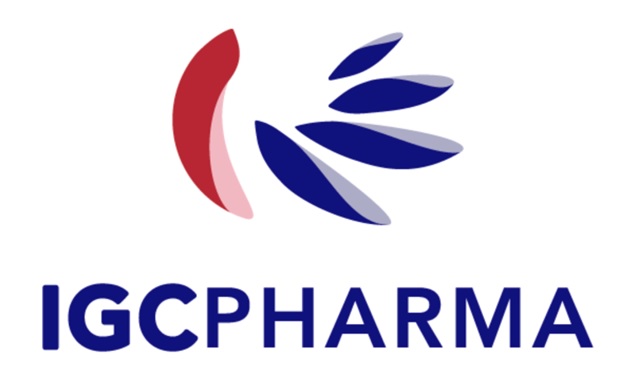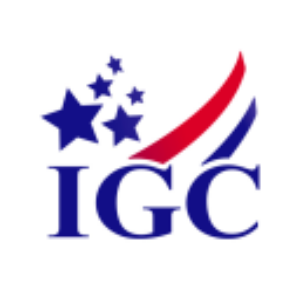IGC Pharma Reports IGC-M3's In Vitro Efficacy Against Alzheimer's - Targeting key Drivers of Disease Progression
Rhea-AI Summary
IGC Pharma (NYSE American:IGC) has announced promising preclinical data for its investigational molecule IGC-M3 in the treatment of Alzheimer's disease. The in vitro studies demonstrate that IGC-M3 targets multiple biological mechanisms central to Alzheimer's pathology through four key actions:
The compound has shown ability to inhibit amyloid aggregation, promote disassembly of amyloid aggregates, neutralize reactive oxygen species, and reduce pro-inflammatory signaling in cellular models. In SH-SY5Y human neuronal cells, IGC-M3 demonstrated neuroprotective effects, while in BV2 microglial cells, it reduced Aβ42-induced activation and decreased pro-inflammatory markers.
The company plans to advance IGC-M3 to in vivo studies to evaluate its potential efficacy and safety in animal models, aiming to develop a disease-modifying treatment for Alzheimer's.
Positive
- IGC-M3 demonstrates efficacy against multiple Alzheimer's disease mechanisms in vitro
- High synthesis efficiency with 81% yield, indicating potential for cost-effective production
- Compound shows neuroprotective effects in human neuronal cells
- Successful reduction of inflammatory markers in microglial cells
Negative
- Results are limited to in vitro studies only, with no animal or human trial data yet
- Further studies needed to confirm safety and efficacy in living organisms
News Market Reaction
On the day this news was published, IGC gained 0.23%, reflecting a mild positive market reaction. Argus tracked a trough of -20.9% from its starting point during tracking. Our momentum scanner triggered 2 alerts that day, indicating moderate trading interest and price volatility. This price movement added approximately $67K to the company's valuation, bringing the market cap to $29M at that time.
Data tracked by StockTitan Argus on the day of publication.
- New hope in Alzheimer's: IGC-M3 targets the disease on four fronts, showing promise in cellular models -
POTOMAC, MD / ACCESS Newswire / August 5, 2025 / IGC Pharma, Inc. (NYSE American:IGC) ("IGC" or the "Company"), a clinical-stage pharmaceutical company leveraging AI to develop innovative treatments for Alzheimer's and metabolic disorders, today announced encouraging preclinical data on its investigational molecule "IGC-M3".

The invitro results demonstrates that IGC-M3 may offer disease-modifying potential by targeting multiple biological mechanisms central to Alzheimer's pathology, including amyloid aggregation, oxidative stress, mitochondrial dysfunction, and neuroinflammation.
In biochemical and cellular models, IGC-M3
Inhibited aggregation of amyloid a central component in senile plaque formation;
Promoted disassembly of pre-formed amyloid aggregates, thereby reducing the presence of toxic amyloid species;
Neutralized reactive oxygen species (ROS) and preserved mitochondrial membrane potential,
Prevented programmed neuronal cell death by blocking cytochrome c release;
And reduced pro-inflammatory signaling (e.g., NF-κB and TNF-α) in activated microglial cells.
"These findings suggest that IGC-M3 may be able to intervene at multiple points in the Alzheimer's cascade, a promising sign for its development as a disease -modifying candidate," said Ram Mukunda, CEO of IGC Pharma.
"Alzheimer's is a one of the most devastating and costly disease of our time, and patients and caregivers urgently need better options. The early results of IGC-M3 reflect IGC, commitment to develop therapies that can change the course of the disease as well as medications such as IGC-AD1 that help manage symptoms."
The IGC-M3 molecule is a synthetic derivative featuring a tricyclic aromatic core containing a fused isoindolinone-imide structure. Attached to the nitrogen of the imide is a side chain consisting of a pyridine ring linked via a methylene group to a 1,2,3-triazole ring, a motif often associated with coordination potential and biological activity. Additionally, the molecule bears a benzyl substituent with a phenyl ring substituted by two hydroxyl groups in ortho and para positions, resembling a catechol moiety. This group may contribute polarity, antioxidant potential, and hydrogen bonding capacity. Compound IGC-M3 was synthesized with a yield of
In SH-SY5Y human neuronal cells, IGC-M3 showed neuroprotective effects by preserving mitochondrial membrane potential and reducing the production of reactive oxygen species after Aβ42-induced damage. It also prevented the release of cytochrome c, an early marker of apoptosis, and significantly reduced programmed cell death.
In BV2 microglial cells, which mediate neuroinflammatory responses in AD, IGC-M3 reduced Aβ42-induced activation, normalized mechanical cell parameters such as height, stiffness, and adhesion force, and decreased the expression of pro-inflammatory markers including NF-κB and TNF-α, both associated with chronic inflammation in Alzheimer's disease.
Although these findings are limited to in vitro models, the breadth of biological effects observed suggests that M3 has the potential to modulate multiple pathways in the Alzheimer's disease cascade. The Company expects that IGC-M3 will advance to in vivo studies to evaluate potential efficacy and safety in animal models. If benefits are confirmed, IGC-M3 could represent a promising candidate for the development of disease-modifying treatments aimed at slowing or halting neurodegenerative progression in Alzheimer's disease.
The development of innovative compounds like IGC-M3 offers renewed hope in the fight against Alzheimer's, a disease that currently affects millions of individuals and families worldwide. Multifunctional molecules that can act on several pathological fronts at once may represent the next frontier in achieving meaningful clinical progress and improving patient outcomes.
About IGC Pharma (dba IGC):
IGC Pharma (NYSE American:IGC) is a clinical-stage biotechnology company leveraging AI to develop innovative treatments for Alzheimer's and metabolic disorders. Our lead asset, IGC-AD1, is a cannabinoid-based therapy currently in a Phase 2 trial (CALMA) for agitation in Alzheimer's dementia. Our pipeline includes TGR-63, targeting amyloid plaques, and early-stage programs focused on neurodegeneration, tau proteins, and metabolic dysfunctions. We integrate AI to accelerate drug discovery, optimize clinical trials, and enhance patient targeting. With 30 patent filings and a commitment to innovation, IGC Pharma is advancing breakthrough therapies.
Forward-Looking Statements:
This press release contains forward-looking statements. These forward-looking statements are based largely on IGC Pharma's expectations and are subject to several risks and uncertainties, certain of which are beyond IGC Pharma's control. Actual results could differ materially from these forward-looking statements as a result of, among other factors, the Company's failure or inability to commercialize one or more of the Company's products or technologies, including the products or formulations described in this release, or failure to obtain regulatory approval for the products or formulations, where required, or government regulations affecting AI or the AI algorithms not working as intended or producing accurate predictions; general economic conditions that are less favorable than expected; the FDA's general position regarding cannabis- and hemp-based products; and other factors, many of which are discussed in IGC Pharma's U.S. Securities and Exchange Commission ("SEC") filings. IGC incorporates by reference its Annual Report on Form 10-K filed with the SEC on June 27, 2025, as if fully incorporated and restated herein. Considering these risks and uncertainties, there can be no assurance that the forward-looking information contained in this release will occur. IGC Pharma, Inc. assumes no obligation to update forward-looking statements contained in this release as the result of new information or future events or developments.
Contact Information
Rosalyn Christian
IMS Investor Relations
igc@imsinvestorrelations.com
(203) 972-9200
SOURCE: IGC Pharma, Inc.
View the original press release on ACCESS Newswire







